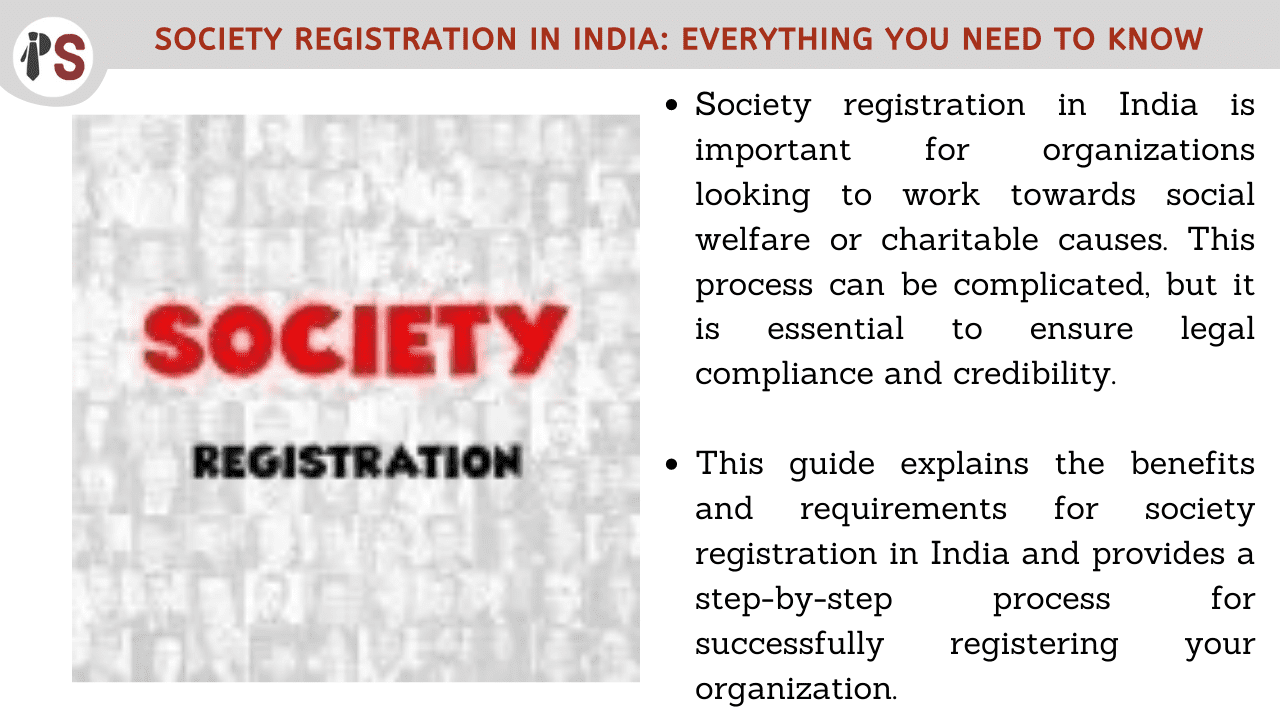
Society registration is a legal process that enables a group of people with a common interest to come together and form an association. The society can then function as a non-profit organization with a specific objective or purpose, such as promoting education, sports, or cultural activities. The process of society registration can vary depending on the country or state where the organization is located. This blog will provide an overview of how to register your society in India.
Choosing a Name: The first step to register a society is to choose a unique name for the organization. It is important to check the availability of the name with the Registrar of Societies in the state where the society is to be registered.
Drafting Memorandum of Association (MOA) and Rules and Regulations: The MOA and Rules and Regulations document should include the objectives of the society, its activities, membership requirements, and the rules governing the functioning of the society.
Getting Signatures of Members: At least seven members of the society should sign the MOA and Rules and Regulations document.
Filing the Registration Form: After getting the signatures, the next step is to file the registration form along with the MOA and Rules and Regulations document and other required documents with the Registrar of Societies in the state where the society is to be registered.
Payment of Registration Fee: The registration fee for society registration varies from state to state. Once the fee is paid, the Registrar will issue a Certificate of Registration.
Legal Recognition: Society registration provides legal recognition to the organization, which makes it easier for the society to enter into contracts, open bank accounts, and conduct other activities.
Tax Benefits: A registered society is eligible to avail of tax benefits under Section 80G of the Income Tax Act, which allows for tax deductions on donations made to the society.
Credibility: Society registration adds credibility to the organization and helps in gaining the trust of members, donors, and other stakeholders.
Perpetual Existence: A registered society has perpetual existence, which means that the organization can continue to function even if the members change.
In conclusion, society registration is an important process for organizations that wish to operate as non-profit entities with a specific objective or purpose. By following the above steps and obtaining legal recognition, a society can benefit from tax exemptions, increased credibility, and perpetual existence.
At Professional Saathi, we offer a range of business consultancy services that help businesses improve their performance, achieve growth, and overcome challenges.
Copyright 2026 © Created By KTPG PROFESSIONAL SAATHI CORPORATE CONSULTANT PRIVATE LIMITED, All Rights Reserved.
Leave Your Comment